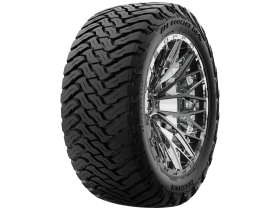SUVs or sport recreational vehicles are very popular these days. Off-road vehicles are no longer the domain of only farmers or country folks. The newer SUVs give you everyday comfort and convenience while offering an opportunity for adventure on the weekends or holidays.
There are two main types of SUVs available. Car based SUVs are sleek, more comfortable and quieter that the more traditional truck based SUVs. They are also more economical to drive and offer better handling. Often called crossovers, these cars based SUVs offer the best of both worlds.
There are a number of important factors to consider before spending your hard earned money on a SUV. Let’s explore a few of these further, to help you with your decision.
1. Budget
A SUV can set you back from under $20 000 to well over $100 000 so budget is an important consideration. It is important to look at not only the initial cost of the vehicle, but future expenses such as repairs, maintenance and servicing as well. Additional features, such as four-wheel drive, are potential expenses you do not have with other vehicles. Tyres for a SUV can also be extremely expensive. Depending on your budget, you could look at new or used SUVs.
2. Size
We will talk about engine size a bit later but the actual size of SUV is an important consideration. SUVs are generally grouped into compact, mid-size or full-size options. You need to a look at your requirements in terms of number of passengers, legroom, as well as cargo space needed when deciding on the size SUV you wish to purchase. Larger SUVs are even used to provide luxury taxi services by companies such as airport transportation Naples, FL allowing plenty of space for passengers as well as their luggage.
3. Features
There are a variety of features available for your convenience and comfort. As with most things, they come at a price. It is important to give thought to those that will be important when deciding on your SUV. A few examples of features are climate control, heated seats, audio features or connections, navigation systems, rear cameras for reversing/parking and foldable seats.
It is often better to get the features you require upfront rather than installing them later. It is also pointless spending additional money on features that are of little benefit to you.
4. Engine Size and Fuel Economy
The engine size of SUVs can range from 4, 6 to 8 cylinders. This will have a dramatic effect on your fuel consumption. The crossover or car based SUVs are a lot more fuel efficient than the larger models. Consider the type of usage you expect from your SUV. Will you be climbing very steep areas; will you be towing a caravan or trailer or carrying heavy cargo? With the cost of fuel these days, it is important that you select a SUV that is suitable for your requirements, without being too heavy on fuel.
5. Safety
SUVs are by nature not as agile as the average vehicle. The design also gives them a high centre of gravity which could make them more likely to roll. That being said, the sheer size and height does offer additional protection in the event of an accident.
Some important safety feature to investigate when making your selection are air bags, front and side, anti-lock brakes and stability control. There are also a number of hi-tech options available that will warn you of impending collisions or vehicles in your blind spot.
The safety of you and your family are of vital importance so spend some time thinking about these safety features.
Now that you know a bit more about the important factors to consider, give some thought to what you want to do with your SUV, both now and in the future. Look at the size of your family, your budget and your needs. With this information, you will be in a good position to get a SUV that will give you many years of enjoyment.
Photo by Riedelmeier, CC0 1.0







